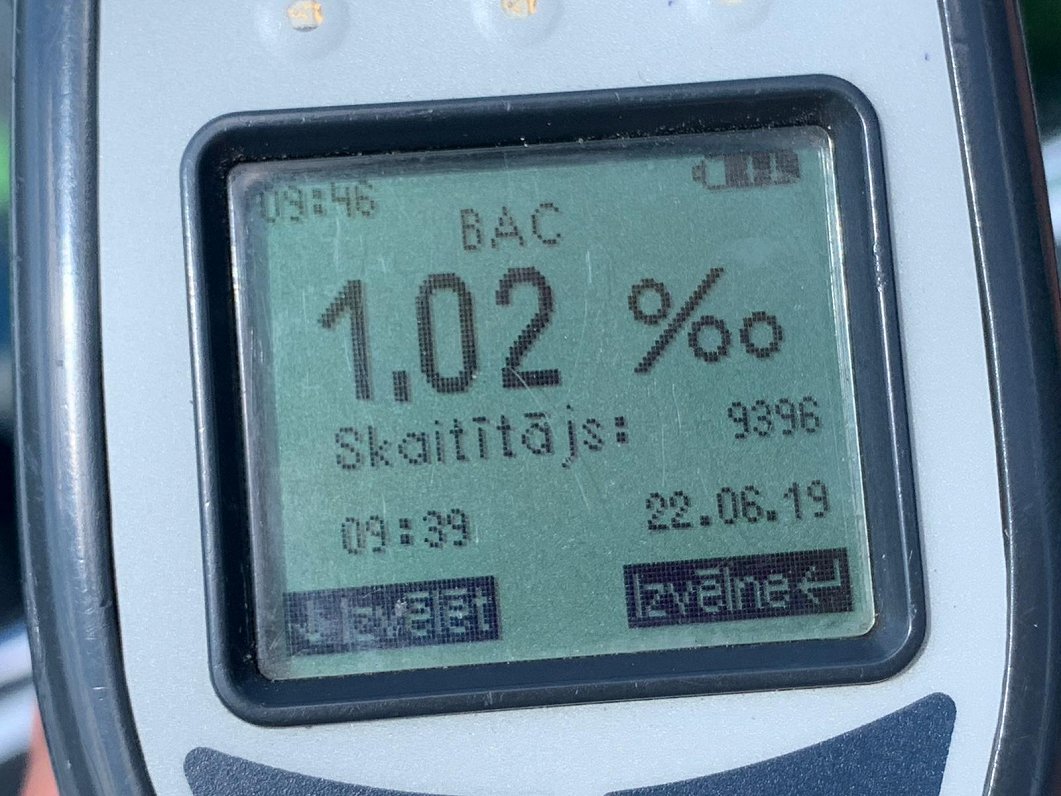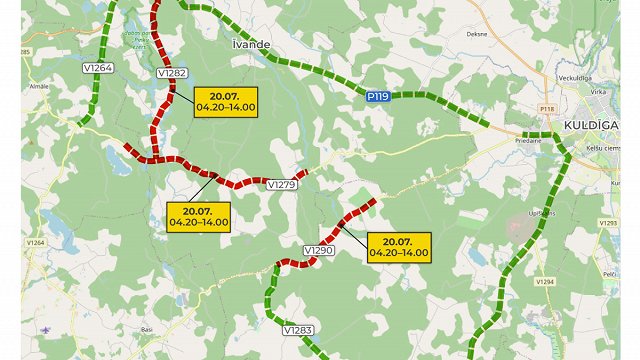A personal story
An alcoholic of many trades is how Velta (name changed) describes a person close to her. He uses alcohol a lot and regularly, but when he is sober he is ashamed of it, so he did not want to give the interview himself. This relative's “mind brake” doesn't exist anymore, so he drives drunk and has had serious consequences.
Velta said: “He's already caused two accidents. The first crash happened a while ago; there he had over 3 promille [blood alcohol concentration]. Then his license was taken away. Some more time passed, and relatively recently he [..] drove without his license. Was very drunk, close to 4 promilles and caused a crash. In both of these accidents he was fine, he didn't suffer, the cars were worse off."
No other vehicles or people were involved in the accidents – the first time Velta's relative drove into a ditch and the second time into a pole. Driving license has been lost for several years, and penalties have to be paid. He has been treated in the narcology department several times, but cannot stop drinking.
Velta said: “It was a short-term treatment, it did not result in anything. In the beginning, when he comes out of treatment, he comes with the cries of victory on his lips – I will stop immediately and never use again, but it takes literally a day or two, and everything continues. [..]. He's ashamed of the fact that he's done something like this, and ashamed that he is continuing to drink alcohol.”
Some improvements since tougher laws have been introduced
Velta's relative is not the only one who has continued drinking and driving in spite of being caught, stripped of license and being involved into accidents. In order to describe the scale of the problem, it is necessary to compare the situation before and after November last year, when drunk driving was criminalized and the police began confiscating drunk drivers' cars, said Andis Rinkevics, chief of the State Police Prevention Control Division.
“Last year, on average, we identified or detained an average of 12 to 13 drivers per day who had been intoxicated. This year, meanwhile, they are about 9-10 drivers,” Rinkevics noted.
The police spokesman concluded that since the punishments had become more severe, the problem had been reduced by around 20%, but there were still offenders repeatedly driving drunk.
There are no data for the post-November period yet, but an in-depth study carried out in the second half of last year showed – among drivers who had been driving while heavily intoxicated, about 60% to 70% had a history of breaching traffic rules.
“The most tragic thing about the scale of this problem is that a third of these drivers [..] had already been stripped of their license, so that they had actually been penalized for the same offense before,” the police spokesman said.
Societal acceptance of drinking
Many justify driving drunk with the awareness that they will not be caught, particularly those who live in remote areas where permanent police surveillance is not possible. S
The police spokesman Rinkevics said: "There are people who are able to self-discipline themselves and comply with the prescribed rules, knowing that this activity is not socially desirable or likely to have negative effects. That is absolutely the majority of drivers. On the other hand, there are people who, even aware of the consequences that can arise, are unable to discipline themselves once there is no external force on these norms. It's a small group of public and also drivers who need police oversight. Otherwise, they cannot and will not in any way be able to motivate themselves and respect the norms."
If one has lost the sense of their own and societal boundaries, they might only be motivated to comply with traffic rules under constant oversight. Some might be encouraged if the law stipulated that no alcohol concentration is permissible. Currently, drivers with experience of over 2 years can legally drive intoxicated at under 0.5 promilles and those under 2 years – at 0.2 promilles. Thus, even at the level of the legislator, such action has been found to be normal.
This is another factor that shows the depth of the problem: it seems acceptable to the public to drink alcohol rather than not to drink.
A mandatory behavioral adjustment program as a prerequisite for the recovery of the driver's license is intended to be introduced by the Ministry of Transport for drunk drivers. An appropriate draft of the rules has been created; it has now been transferred to other ministries for harmonization and has been created to replace the administrative arrest that has already been lifted some time ago.
The adjustment program is intended to be organized in groups; in the same way as an adjustment for aggressive drivers, private operators would also provide this service, but the infringers themselves would pay for it.
Iin order to recover a driving license, an early health check should be carried out first. During the period from July 1 last year to July 25 this year nearly 1,500 persons have been sent to such an inspection, according to statistics from the Road Traffic Safety Directorate (CSDD). If the commission recognizes that a person does not have an alcohol addiction, the adjustment program planned by the Ministry of Transport should be completed. On the other hand, if the specialists believe that the driver has an uncontrolled tendency to drink alcohol, there is a requirement for treatment and proof of remission.































